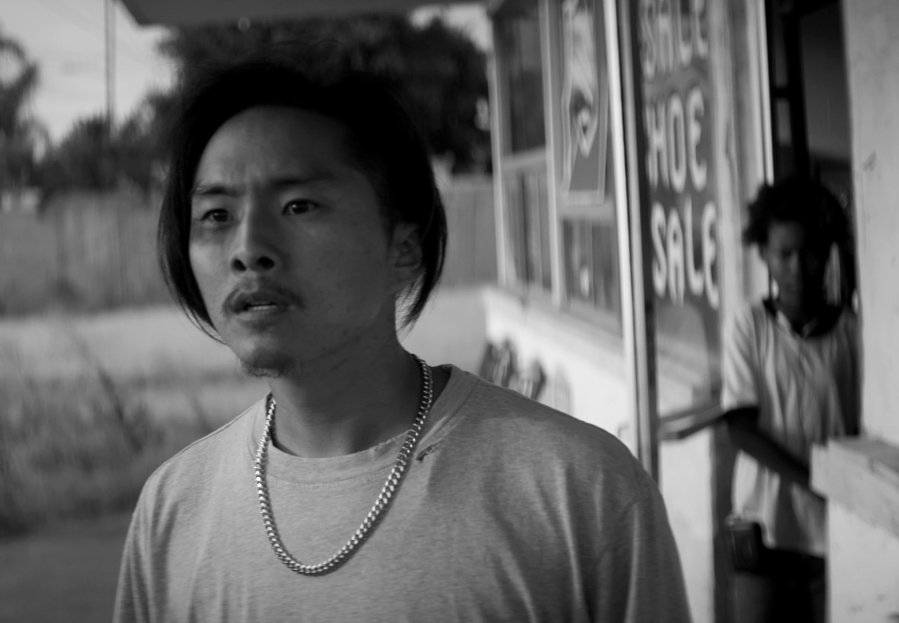‘Gook” opens with an arresting black-and-white image: an 11-year-old girl dancing with abandon in slow motion in front of a fiery blaze. It looks ominous — a Los Angeles house on fire with no one else around — but the girl delights in the scene, moving as wildly as the flames.
The fire hints at larger infernos to come. The story takes place on April 29, 1992, the day the Rodney King verdict prompted riots across L.A. But this isn’t a ground-level look at the destruction. Rather, writer-director Justin Chon makes the inspired choice to shift the action to Paramount, Calif. It’s a few miles from where the worst violence and looting occurred, but still close enough to be burdened by the same racial tensions that were reaching a breaking point across the region and beyond.
Chon, an actor who appeared in the “Twilight” saga, plays Eli, a young Korean-American who runs his late father’s discount shoe store. The dilapidated shop sits on a shabby block in a mostly black and Latino neighborhood, and Eli is understandably stressed about making ends meet.
His brother Daniel (a delightful David So, in his big-screen debut) helps out — though not much. Secretly, he doesn’t care about the shop. He’d rather be an R&B singer.



